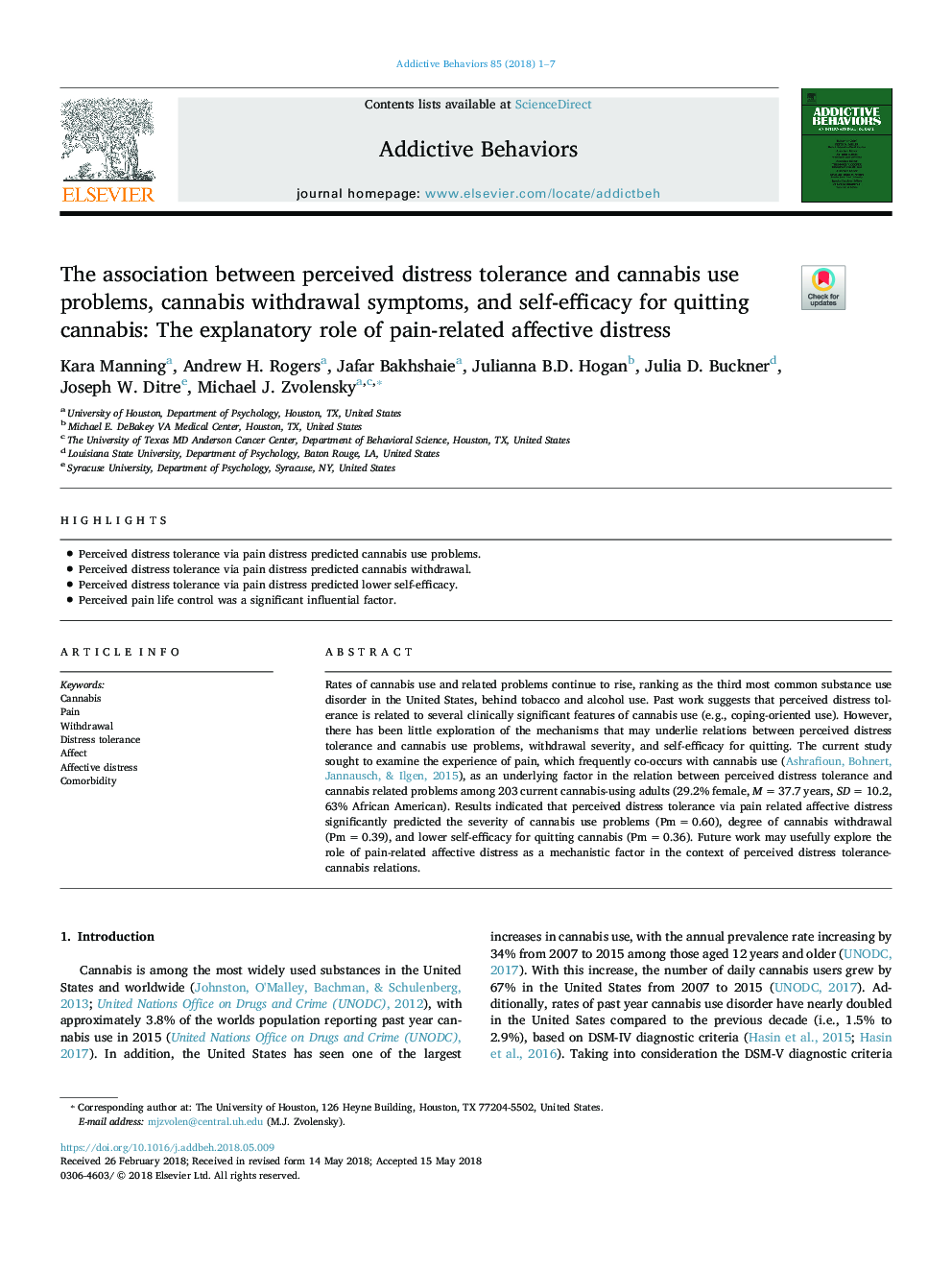| کد مقاله | کد نشریه | سال انتشار | مقاله انگلیسی | نسخه تمام متن |
|---|---|---|---|---|
| 7258858 | 1472486 | 2018 | 7 صفحه PDF | دانلود رایگان |
عنوان انگلیسی مقاله ISI
The association between perceived distress tolerance and cannabis use problems, cannabis withdrawal symptoms, and self-efficacy for quitting cannabis: The explanatory role of pain-related affective distress
ترجمه فارسی عنوان
ارتباط بین تحمل دشواری درک شده و مشکلات استفاده از کانابیس، نشانه های زایمان کانابیس و خودمراقبتی برای ترک کانابیس: نقش توضیحی اختلال عاطفی مرتبط با درد
دانلود مقاله + سفارش ترجمه
دانلود مقاله ISI انگلیسی
رایگان برای ایرانیان
کلمات کلیدی
کانابیس، درد، برداشت از حساب، تحمل دوری، تاثیر می گذارد، ناراحتی مضر، همبودی، وجود همزمان دو بیماری،
موضوعات مرتبط
علوم زیستی و بیوفناوری
علم عصب شناسی
علوم اعصاب رفتاری
چکیده انگلیسی
Rates of cannabis use and related problems continue to rise, ranking as the third most common substance use disorder in the United States, behind tobacco and alcohol use. Past work suggests that perceived distress tolerance is related to several clinically significant features of cannabis use (e.g., coping-oriented use). However, there has been little exploration of the mechanisms that may underlie relations between perceived distress tolerance and cannabis use problems, withdrawal severity, and self-efficacy for quitting. The current study sought to examine the experience of pain, which frequently co-occurs with cannabis use (Ashrafioun, Bohnert, Jannausch, & Ilgen, 2015), as an underlying factor in the relation between perceived distress tolerance and cannabis related problems among 203 current cannabis-using adults (29.2% female, Mâ¯=â¯37.7â¯years, SDâ¯=â¯10.2, 63% African American). Results indicated that perceived distress tolerance via pain related affective distress significantly predicted the severity of cannabis use problems (Pmâ¯=â¯0.60), degree of cannabis withdrawal (Pmâ¯=â¯0.39), and lower self-efficacy for quitting cannabis (Pmâ¯=â¯0.36). Future work may usefully explore the role of pain-related affective distress as a mechanistic factor in the context of perceived distress tolerance-cannabis relations.
ناشر
Database: Elsevier - ScienceDirect (ساینس دایرکت)
Journal: Addictive Behaviors - Volume 85, October 2018, Pages 1-7
Journal: Addictive Behaviors - Volume 85, October 2018, Pages 1-7
نویسندگان
Kara Manning, Andrew H. Rogers, Jafar Bakhshaie, Julianna B.D. Hogan, Julia D. Buckner, Joseph W. Ditre, Michael J. Zvolensky,
